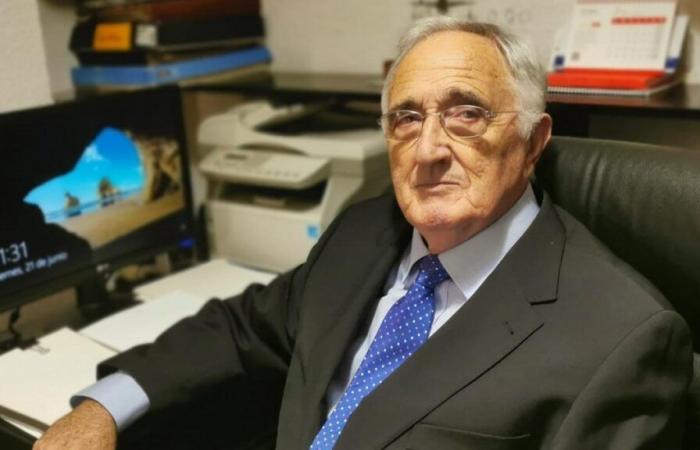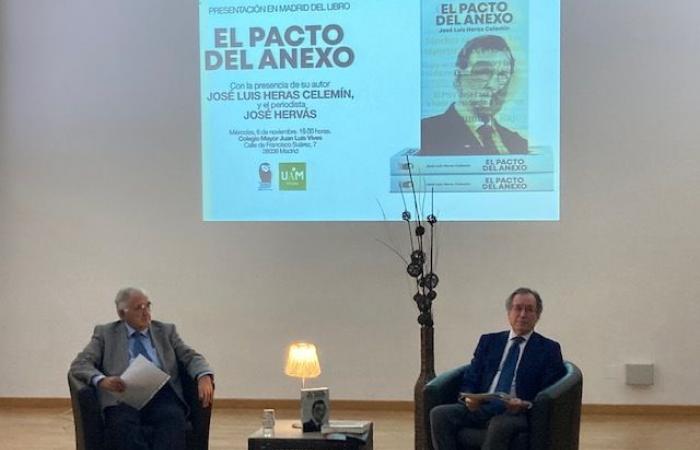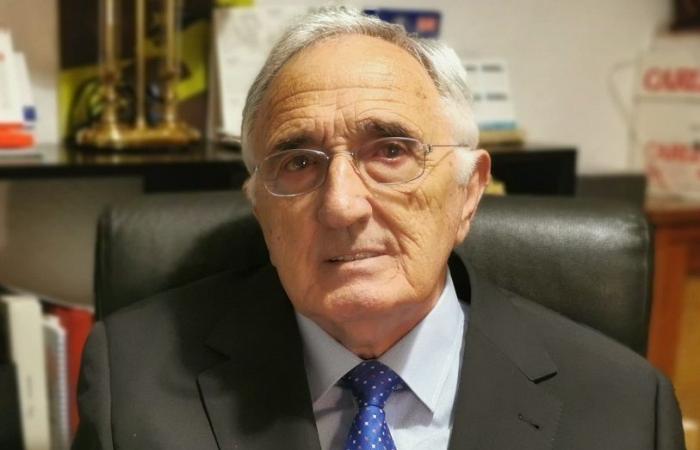With each passing day, these events seem more distant, but the coming to power of Pedro Sánchez through a motion of censure, accompanied by a cheating sausage, was the culmination of a series of circumstances, of coincidences and blunders, which ultimately led to the current political situation the country is going through.
“El Pacto del Anexo” (SND Editores, 383 pages) is a fictionalized account of these decisive days for Spain. Its author, the engineer José Luis Heras Celemín, originally from Zamora, knows the corridors and underground spaces of the Congress of Deputies well. It is not in vain that he works as an experienced parliamentary chronicler, without deviating from his keen observation of Spanish political life, a vision that we find in works such as “El Caso Naseiro y algo más”, “El Caso Bankia y algo más” and “El Socialismo Superado”, some of his most striking stories.
The vast majority of Spaniards who experienced these days live or through the television news still ask themselves questions such as: Why did Mariano leave? Why didn't President Rajoy resign two minutes before the vote and leave the government in the hands of his party? Why did he spend the afternoon taking “hits” and not return to Congress? Why was Soraya Sáenz de Santamaría, the vice-president, not president of the Spanish government?
The book is a compilation of the most relevant facts according to the author. For him it was decisive to discover the secret celebration of a meal in the small restaurant of the Congress of Deputies, the one that crosses the passage under the Carrera de San Jerónimo. The guests, MPs from different groups, were seated at the table and appeared to have been carefully chosen. The meal coincided with a meeting between the president of the Generalitat of Catalonia and President Rajoy, after which Artur Mas summoned the national press to the premises of Blanquerna in Madrid, which also depends on the Catalan government.
“In the novel, there are facts which show real powers, hidden or not”, says José Luis Heras, for whom “in Spanish political life, these powers of all kinds influence as much as they can, although the motivations are not always known”. This is what (good) journalists always try to unravel, even if, as one of the characters in the novel admits, “when we journalists go there, there are those who have already been there twice , some are even further ahead than us.”
The author scrutinizes the veracity of clichés deeply rooted in public opinion, such as Rajoy's supposed laziness or his alleged disdain for the search for information. And, after having collected and compared dozens of testimonies, he puts into the mouth of another character that “Don Mariano is very intelligent, much more than all those of Genova [siège du Partido Popular] and government. There are those who think he is lazy and those who believe he only knows what he is told. He knows what it’s about, so much so that if he doesn’t direct everything down to the smallest detail, he’s the one who cuts and distributes the cod.”
Former student of Colegio Mayor Luis Vives, José Luis Heras chose this place to present his novel, in conversation with a historical figure of Televisión Española, José Hervás. The latter underlines the portrait of Rajoy's character with additional information not to be missed, such as the revelation of a lunch with three of them, including President Rajoy, during which one of them asked the leader of the Spanish government “the need to do something, to prepare a strategy to address the Catalan question”. According to his account, the response left him petrified: “Let these politicians [catalans] drown all alone.”

At a time when the political class is incontestably discredited, the author proves it right after having learned to know and analyze it at length. “We are in a democracy,” he said, “where politicians are not extraordinary people, or even the best. Everyone does what they can, know and want to do. They are human, with virtues and faults, the latter being mainly revealed by the media. Their loves, their horns, their desires and their desires for power or revenge are no different from the society in which they live or the social status of each of them.
A novel in which, as he himself admits, he preferred not to include the pages of what would have been his own conclusion, so that it is the reader who, in view of everything that has been told, decides the ending.








